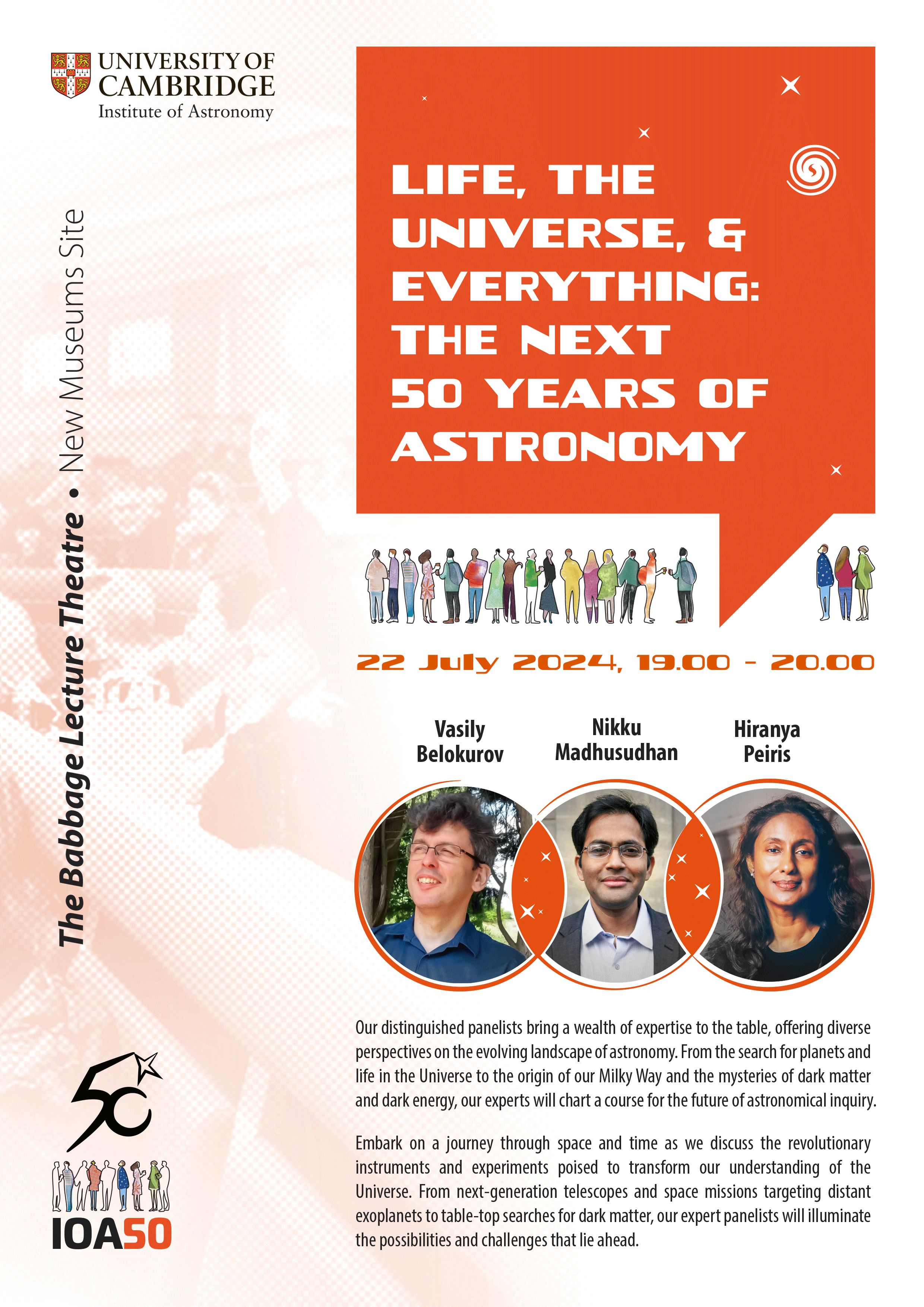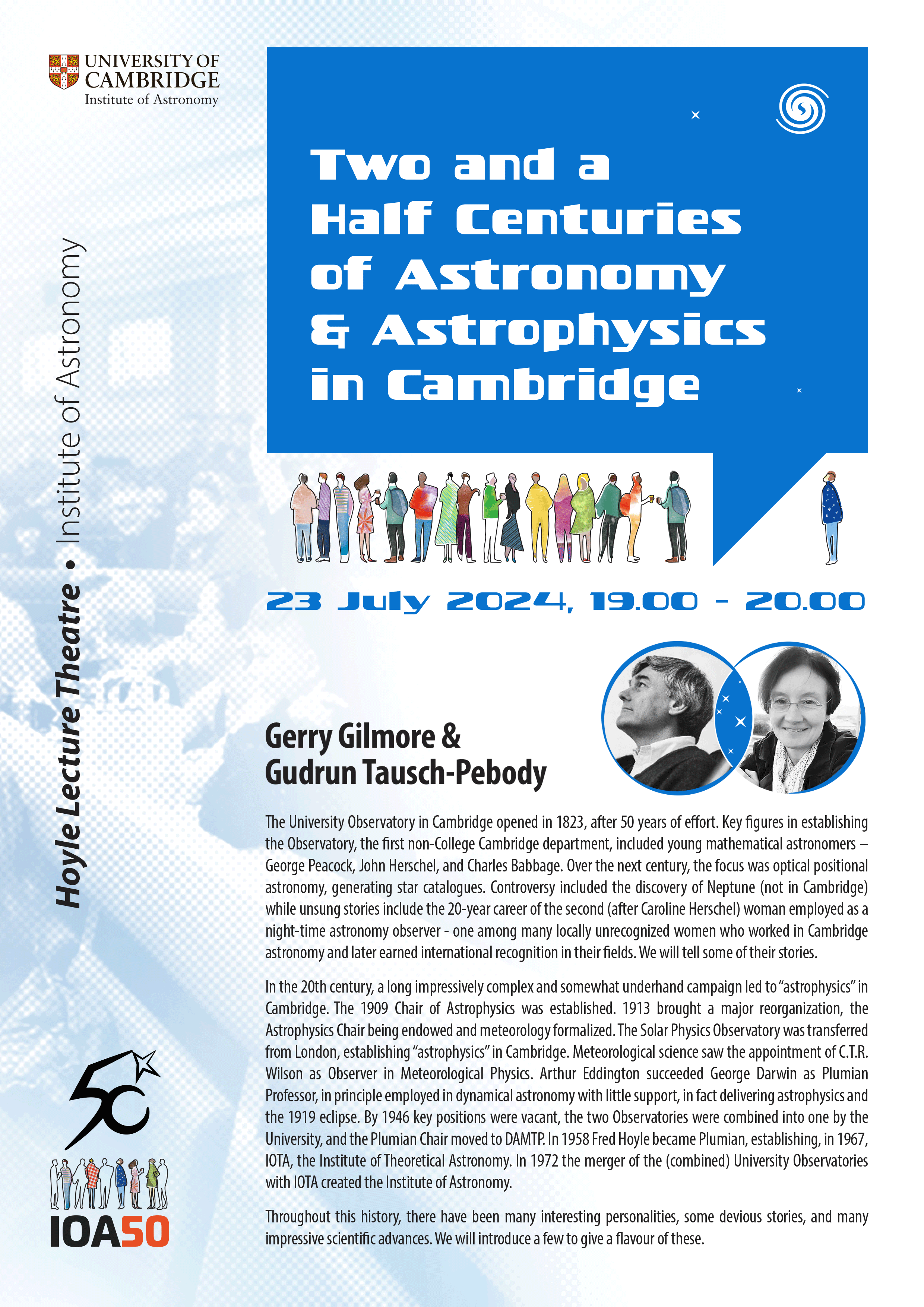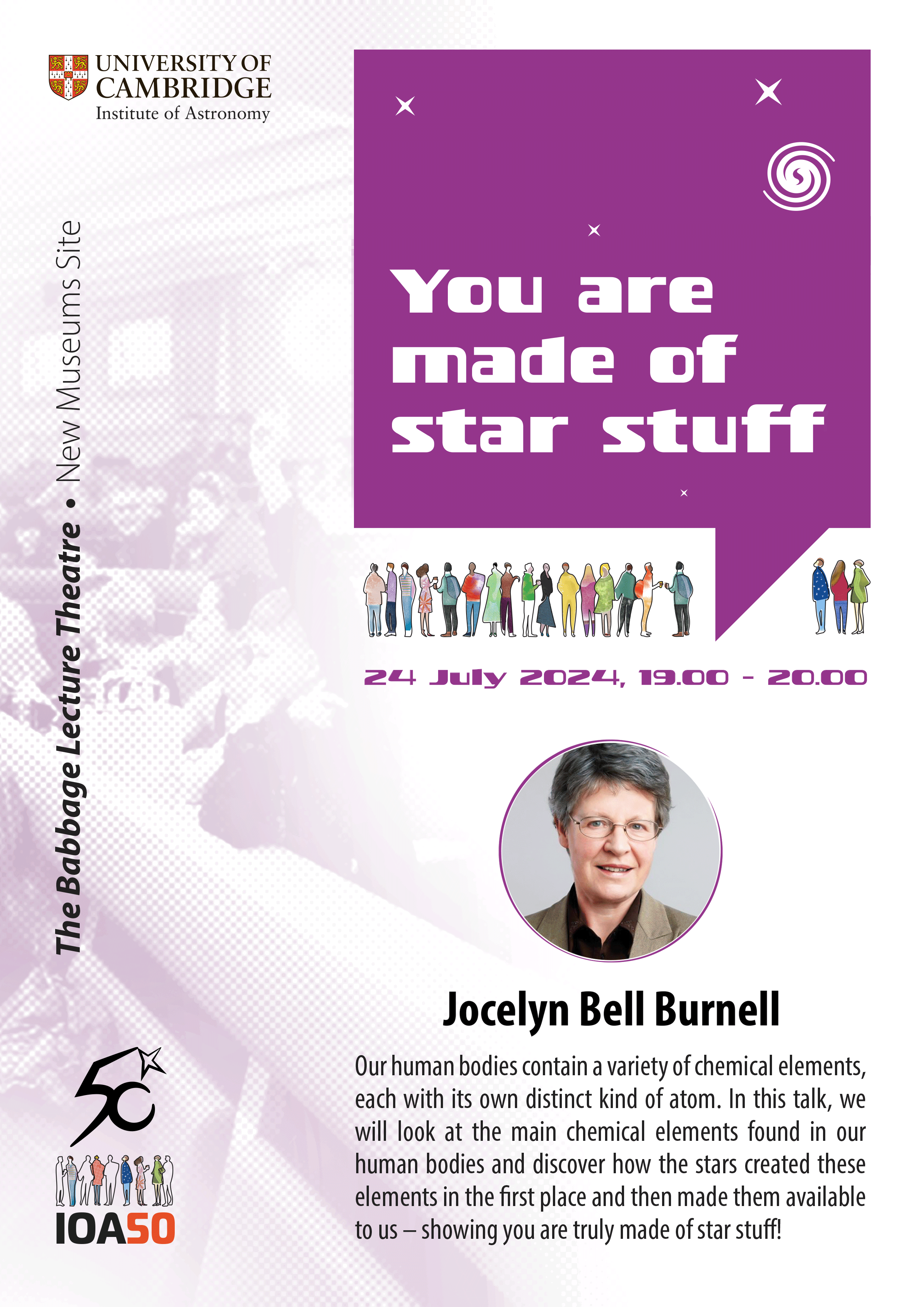Join us for three enlightening public talks during the Institute of Astronomy's 50th-year celebration conference.
**The public talks, including the Q&A sessions, will be recorded and streamed via the IoA YouTube channel. Please visit our YouTube channel if you cannot attend the event(s) in person. Should you wish not to be recorded, please be aware of this in advance.
Please contact us via ioa50-frontiers@ast.cam.ac.uk if you have questions about the programme and streaming.
Babbage Hall what3words: https://w3w.co/palm.heat.means
Monday, 22 July @Babbage Hall: Reserve your free spot here.
| 19:00 - 20:00 | Vasily Belokurov, Nikku Madhusudhan & Hiranya Peiris | Life, the Universe, and Everything: The next 50 years of astronomy |
Join us for an illuminating panel discussion covering 'Life, The Universe, and Everything: The Next 50 Years of Astronomy,' featuring three Cambridge professors working at the forefront of astronomical research.
Our distinguished panelists bring a wealth of expertise to the table, offering diverse perspectives on the evolving landscape of astronomy. From the search for planets and life in the Universe to the origin of our Milky Way and the mysteries of dark matter and dark energy, our experts will chart a course for the future of astronomical inquiry.
Embark on a journey through space and time as we discuss the revolutionary instruments and experiments poised to transform our understanding of the Universe. From next-generation telescopes and space missions targeting distant exoplanets to table-top searches for dark matter, our expert panelists will illuminate the possibilities and challenges that lie ahead.
Tuesday, 23 July @ HoyleLecture Theatre, Institute of Astronomy: Reserve your free spot here.
| 19:00 - 20:00 |
Gerry Gilmore & Gudrun Tausch-Pebody |
Two and a Half Centuries of Astronomy and Astrophysics in Cambridge |
The University Observatory in Cambridge opened in 1823, after 50 years of effort. Key figures in establishing the Observatory, the first non-College Cambridge department, included young mathematical astronomers – George Peacock, John Herschel, and Charles Babbage. Over the next century, the focus was optical positional astronomy, generating star catalogues. Controversy included the discovery of Neptune (not in Cambridge) while unsung stories include the 20-year career of the second (after Caroline Herschel) woman employed as a night-time astronomy observer - one among many locally unrecognized women who worked in Cambridge astronomy and later earned international recognition in their fields. We will tell some of their stories.
In the 20th century, a long impressively complex and somewhat underhand campaign led to “astrophysics” in Cambridge. The 1909 Chair of Astrophysics was established. 1913 brought a major reorganization, the Astrophysics Chair being endowed and meteorology formalized. The Solar Physics Observatory was transferred from London, establishing “astrophysics” in Cambridge. Meteorological science saw the appointment of C.T.R. Wilson as Observer in Meteorological Physics. Arthur Eddington succeeded George Darwin as Plumian Professor, in principle employed in dynamical astronomy with little support, in fact delivering astrophysics and the 1919 eclipse. By 1946 key positions were vacant, the two Observatories were combined into one by the University, and the Plumian Chair moved to DAMTP. In 1958 Fred Hoyle became Plumian, establishing, in 1967, IOTA, the Institute of Theoretical Astronomy. In 1972 the merger of the (combined) University Observatories with IOTA created the Institute of Astronomy.
Throughout this history, there have been many interesting personalities, some devious stories, and many impressive scientific advances. We will introduce a few to give a flavour of these.
Wednesday, 24 July @ Babbage Lecture Theatre: Reserve your free spot here.
| 19:00 - 20:00 | Jocelyn Bell Burnell | You are made of star stuff |
Our human bodies contain a variety of chemical elements, each with its own distinct kind of atom. In this talk, we will look at the main chemical elements found in our human bodies and discover how the stars created these elements in the first place and then made them available to us – showing you are truly made of star stuff!



